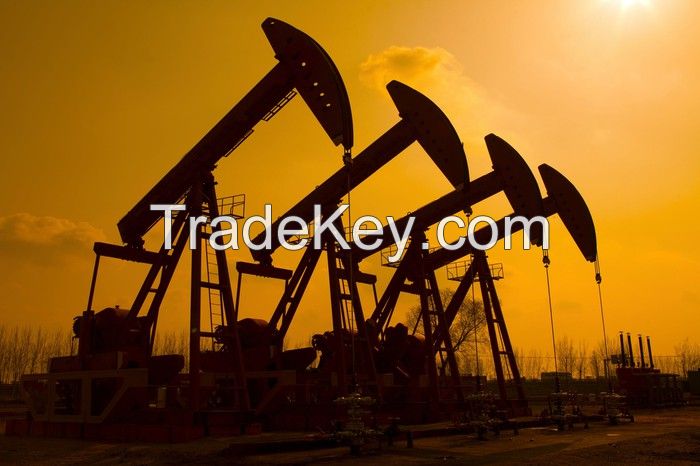Description
Aviation Gasoline
Aviation gasoline is a complex mixture of relatively volatile
hydrocarbons. The higher performance grades are produced by
blending specially manufactured high octane petroleum fractions
consisting of paraffins and light aromatic compounds. Aviation
gasoline grades are identified in specifications by their minimum
anti-knock engine ratings. The use of incorrect grade can have
disastrous results in terms of engine performance and aircraft
safety. In order to differentiate between grades, dyes are added to
the fuels in accordance with an internationally agreed colour code
to impart a distinctive colour.
Applications:
In general, each type of engine is certified to operate on a
specific grade of fuel and at one time several grades covering a
range of anti-knock ratings were produced to meet the requirements
of all the different types of engine. In recent years the
diminishing demand for aviation gasoline has led to reduction in
the number of grades available. With fewer fuel grades,
manufacturing, storage and handling costs are reduced with
subsequent benefits to consumers. Avgas **0LL is now the most
widely available grade having replaced Avgas *0 and Avgas **0 in
most areas of the world.
Aviation turbine fuels (jet fuels)
Aviation turbine fuels (jet fuels) are manufactured
predominantly from straight run kerosines which normally require
further treatment to meet the specification requirements. At some
refineries there is an increasing tendency to incorporate
proportions of product produced by hydrocracking processes.
The Check List for Jet A*1, a kerosine fuel having a maximum
freezing point of **7oC, forms the basis of international supply of
virtually all commercial aviation world-wide. Most military
organisations now use kerosine type fuels which are virtually
indentical to Jet A*1 in basic properties, differing mainly in the
types of additives required. In areas where the same basic grade is
used by both military and commercial industries, only one grade
need be manufactured, stored and distributed as the additives
required by the military can be injected as the fuel is supplied to
the military.
Jet A*1
Motoline Jet A*1 is a petroleum distillate blended from
kerosine fractions having a freezing point below *0 decgrees C and
a flash point above *8 degrees C. It does not usually contain a
static dissipator additive.
JET A*1Jet A*1 is a kerosene grade of fuel suitable for most
turbine engined aircraft. It is produced to a stringent
internationally agreed standard, has a flash point above *8°C
(**0°F) and a freeze point maximum of **7°C. It is widely available
outside the U.S.A. Jet A*1 meets the requirements of British
specification DEF STAN ****1 (Jet A*1), (formerly DERD ***4
(AVTUR)), ASTM specification D***5 (Jet A*1) and IATA Guidance
Material (Kerosine Type), NATO Code F**5.
Aviation Gasoline
Aviation gasoline is a complex mixture of relatively volatile
hydrocarbons. The higher performance grades are produced by
blending specially manufactured high octane petroleum fractions
consisting of paraffins and light aromatic compounds. Aviation
gasoline grades are identified in specifications by their minimum
anti-knock engine ratings. The use of incorrect grade can have
disastrous results in terms of engine performance and aircraft
safety. In order to differentiate between grades, dyes are added to
the fuels in accordance with an internationally agreed colour code
to impart a distinctive colour.
Applications:
In general, each type of engine is certified to operate on a
specific grade of fuel and at one time several grades covering a
range of anti-knock ratings were produced to meet the requirements
of all the different types of engine. In recent years the
diminishing demand for aviation gasoline has led to reduction in
the number of grades available. With fewer fuel grades,
manufacturing, storage and handling costs are reduced with
subsequent benefits to consumers. Avgas **0LL is now the most
widely available grade having replaced Avgas *0 and Avgas **0 in
most areas of the world.
Aviation turbine fuels (jet fuels)
Aviation turbine fuels (jet fuels) are manufactured predominantly
from straight run kerosines which normally require further
treatment to meet the specification requirements. At some
refineries there is an increasing tendency to incorporate
proportions of product produced by hydrocracking processes.
The Check List for Jet A*1, a kerosine fuel having a maximum
freezing point of **7oC, forms the basis of international supply of
virtually all commercial aviation world-wide. Most military
organisations now use kerosine type fuels which are virtually
indentical to Jet A*1 in basic properties, differing mainly in the
types of additives required. In areas where the same basic grade is
used by both military and commercial industries, only one grade
need be manufactured, stored and distributed as the additives
required by the military can be injected as the fuel is supplied to
the military.
Jet A*1
Motoline Jet A*1 is a petroleum distillate blended from kerosine
fractions having a freezing point below *0 decgrees C and a flash
point above *8 degrees C. It does not usually contain a static
dissipator additive.
JET A*1Jet A*1 is a kerosene grade of fuel suitable for most
turbine engined aircraft. It is produced to a stringent
internationally agreed standard, has a flash point above *8°C
(**0°F) and a freeze point maximum of **7°C. It is widely available
outside the U.S.A. Jet A*1 meets the requirements of British
specification DEF STAN ****1 (Jet A*1), (formerly DERD ***4
(AVTUR)), ASTM specification D***5 (Jet A*1) and IATA Guidance
Material (Kerosine Type), NATO Code F**5.
